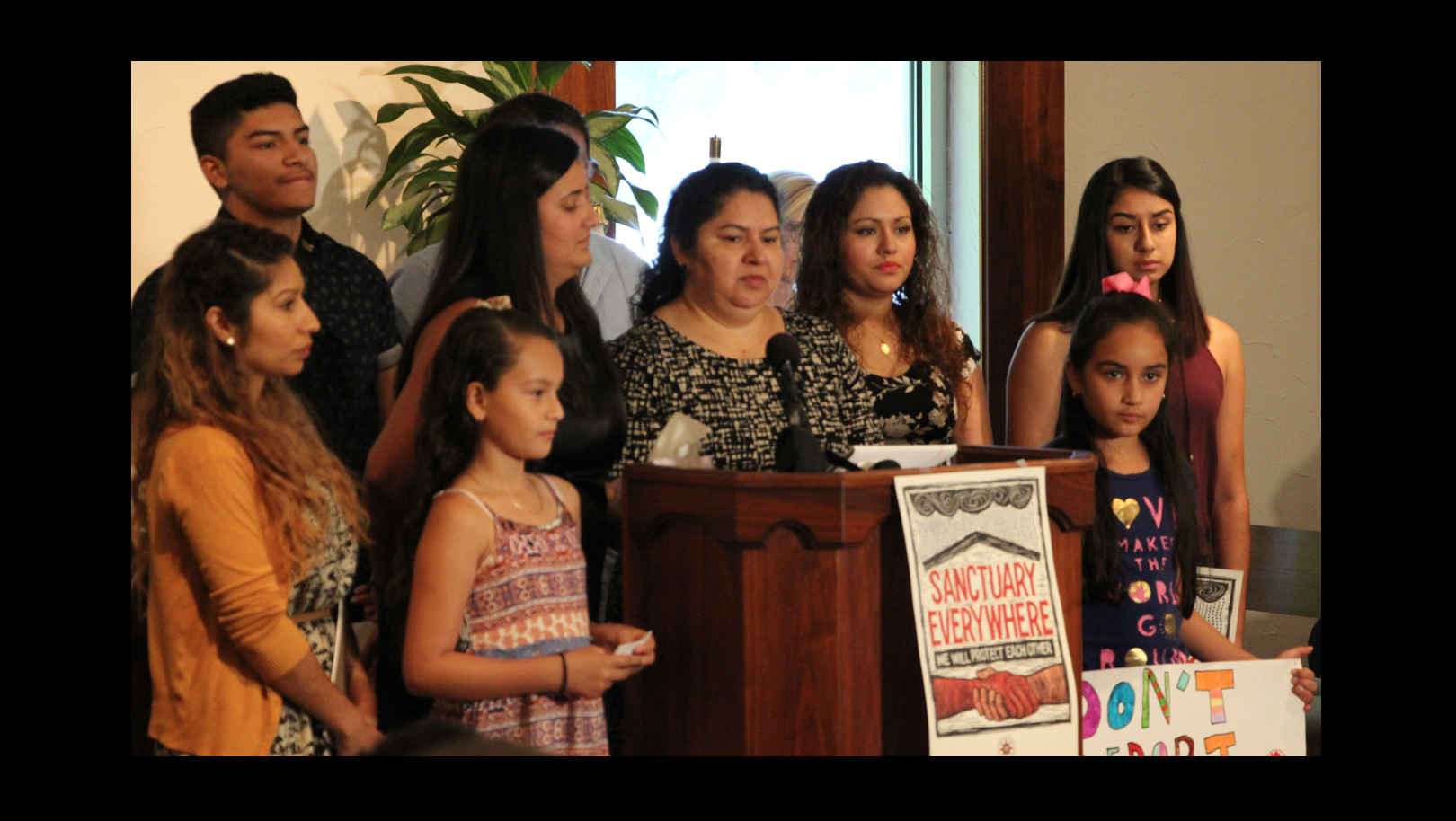Photo courtesy of the Episcopal Diocese of North Carolina.
Under President Trump’s recent executive orders, many people’s lives have changed, especially the lives of those who have come to North Carolina from other countries or who have family members who do not have proper documentation. People are afraid to leave their homes to go to work, church, or the doctor. Children are afraid that their parents won’t be there when they get home. Victims of crimes are afraid to call the police. Our neighbors are living in a state of constant fear and anxiety that their family could be torn apart, and they will be sent back to whatever dangerous situation they had originally fled. In this atmosphere of fear and confusion, some local governments, churches, schools, and hospitals are declaring themselves sanctuaries for undocumented immigrants. But what does that really mean?
In North Carolina under HB 318, which was passed in 2015, sanctuary cities are forbidden. Therefore, sanctuary cities do not technically exist here. However, local civil entities and universities have promised to protect undocumented immigrants, although these policies vary as each group defines its own sanctuary work and how it plans to comply with or defy federal immigration policies. Another kind of sanctuary, one declared by a religious congregation, has deep historical roots related to cities of refuge. If someone has broken a law, either an unjust law or a law for which the specified punishment is unjust, there have been places for people to go to await a fair trial, often in religious spaces. That is the core meaning of sanctuary; it is about creating safe, welcoming spaces for reflection and healing for those who are fleeing violence, persecution, or unjust treatment.
St. Barnabas Episcopal Church in Greensboro has publicly offered sanctuary to a grandmother facing deportation. Juana Luz Tobar Ortega of High Point is a mother of four, two of whom are citizens and two who are DACA recipients, and grandmother of two. She fled violence in Guatemala and moved to Asheboro in 1993. Her husband is a U.S. citizen. She has been here for more than two decades; however, our current immigration system provides no pathway for her to become a citizen. She is not a criminal, having checked in regularly with Immigration and Customs Enforcement (ICE) officials since 2011. ICE continually renewed her stay of removal until her first check-in under the Trump administration, at which point her stay was not renewed, and she was ordered to leave the country or be deported.
St. Barnabas is among the growing number of congregations pledging to offer sanctuary. In my role at the North Carolina Council of Churches, I have seen hundreds of people of faith engaged in learning more about sanctuary and I hope that the example of St. Barnabas will lead other churches to open their doors to people who are integral parts of their communities and families and who are at risk for deportation. Currently more than 2,100 people have signed a petition calling on ICE to allow Mrs. Ortega to stay in the United States, and many other people of faith have pledged material and volunteer support to St. Barnabas in their efforts.
No local policy can prevent ICE agents from conducting raids, making arrests, and deporting undocumented immigrants. Under the Obama administration, ICE was directed not to enter certain “sensitive locations,” namely schools, churches, and health centers. Just as the Trump administration has promised to repeal many Obama-era policies, this memo could also be rescinded at any time. Meanwhile the sanctuary movement remains very powerful. Notably, it serves as a public witness, a function which has significant moral and political ramifications.
When a religious congregation offers sanctuary, it provides temporary housing with a hope that the person being sheltered can receive asylum or a stay of removal. However, it does more than that that, as it strengthens the moral and political muscle of resistance. Sanctuary is one route to changing hearts and minds. When a community of faith offers sanctuary, they meet an undocumented immigrant and hear the person’s story. In my work, I have seen that this type of relationship-building is the best route to creating larger change while it also strengthens our community. Working together in Greensboro, FaithAction International House, the American Friends Service Committee, and other immigrant rights organizations have demonstrated how local groups can partner with their area’s law enforcement and government to make communities safer and more welcoming by building alliances and making commitments. As the community comes together, it stands in opposition to our broken immigration system and anti-immigrant rhetoric and policies.
Sanctuary is not merely a response to raids and detentions or a strategy to fight for individual cases; it is a vision for what our communities can be and a measure of our capacity to love. Love knows no walls or borders. We are called to take prophetic actions demonstrating radical hospitality, rooted in ancient traditions of our faith communities. I applaud St. Barnabas and the many groups working together in Greensboro for demonstrating a loving response to Juana and taking prophetic actions to demonstrate radical hospitality.
It is my hope and prayer that other congregations and communities will follow their lead to stand in solidarity with immigrants and the oppressed.

